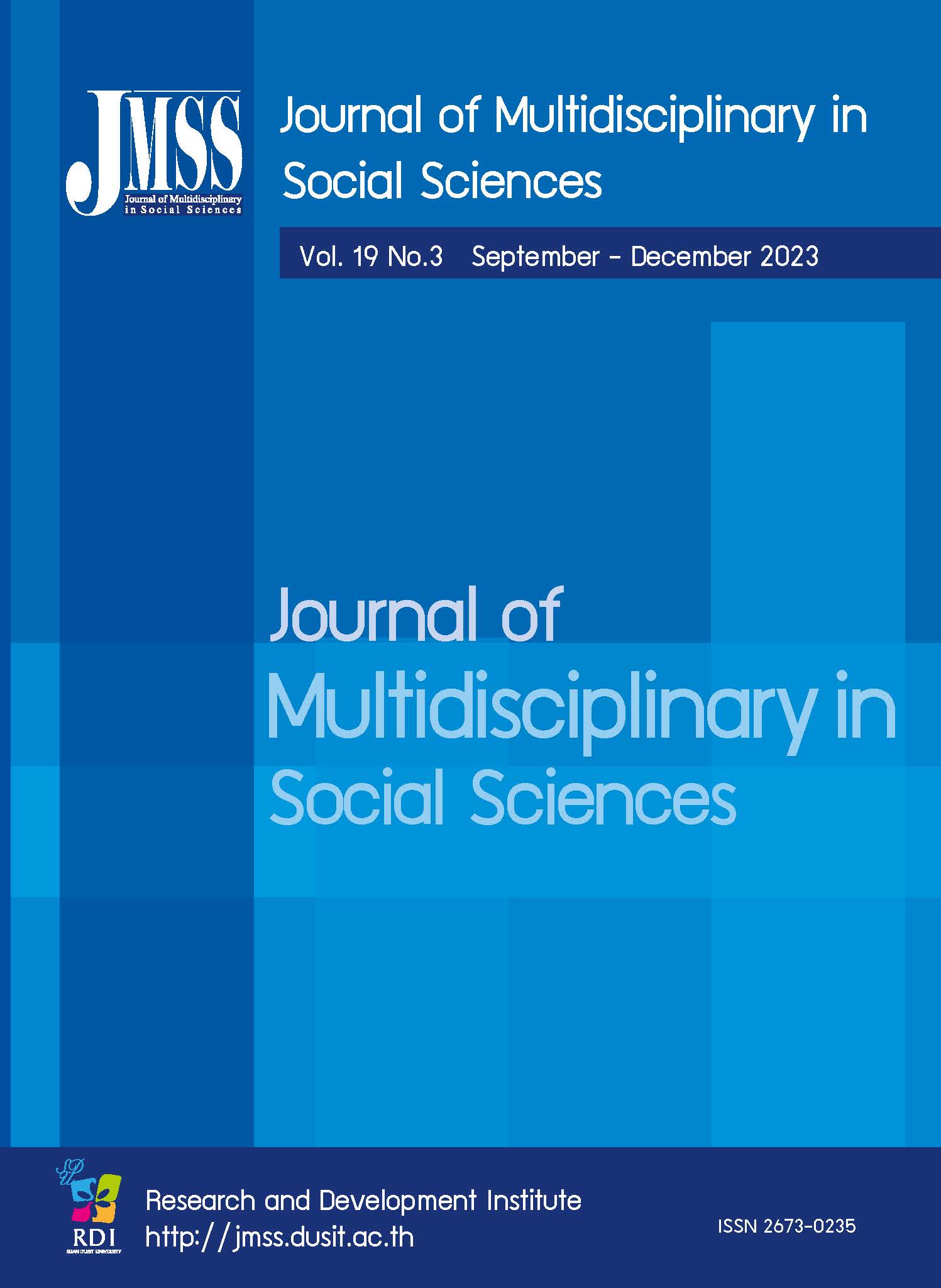Communication for Participation in Creating Successful Waste Management by Communities
Keywords:
Communication to create participation, Waste managementAbstract
This research aims to study communication consultancy services for a zero-waste community, which consists of 1) communication management that enhances public participation 2) communication strategies that enhance public participation 3) principles to develop the communication technique to enhance public participation. This study was qualitative research based on in-depth interviews. The key informants came from 4 groups: 1) Ministry of Natural Resources and Environment Executives 2) Environmental and Dissemination Scholars 3) Village/Community Leaders and 4) Village/Community Voluntary Group, with a total of 49 persons. The results indicated that (1) the communication to enhance participation in a zero-waste community consists of communication policy management, knowledge management, attitude adjustment, project perception, network management, and process management (2) the communication strategies consists of creating awareness of ownership, mission-driven, persuasion, communication tools, and teamwork (3) principals to develop communication tools consists of the development of communication policy, knowledge management, attitude adjustment, perception, network, process management, communication to enhances participation, ownership strategy, persuasion strategy, communication tool strategy, network-driven strategy, and participation strategy. This includes corporation with government and non-government sectors to drive the zero-
References
Pollution Control Department (2012). Pollution Management Plan 2012 – 2016. Bangkok: PCD.
Pollution Control Department (2015). Reduce and separate solid waste in office building handbook. Bangkok: He Co., Ltd.
Pollution Control Department (2016). Master Plan of National Solid Waste Management. Bangkok: Active Print Co., Ltd.
Pollution Control Department (2018). 3Rs manual for Solid Waste Management. Bangkok: He Co., Ltd.
Pollution Control Department (2021). Annual Report of Thailand Pollution 2020. Bangkok: PCD.
Department of Environmental Quality Promotion (2018). Community Based Solid Waste Management: CBM. Bangkok: DEQP.
Department of Environmental Quality Promotion (2020). 2013 Zero Waste Communities. Bangkok: DEQP.
Kewthep, K. (2008). Fundamental of Community Communication: Bangkok: Pappim Co., Ltd.
Kasemsuk, J. (2011). Communication and Social Movement: Bangkok: CU.
Bencharongkit, U. (2011.Planning and Evaluation of Communication Strategies. Bangkok: Faculty of Communication Arts, CU.
Uojongprasit, S. (2008). Principle of Stakeholders Participation: Bangkok: Sam Panitchareon Co., Ltd.
Sothanasatien, S. (2013). Communication Theory. Bangkok: Rabiengthong.
Gibson, J. L. (2000). Organizations Behavior (7th ed.). Boston: Irwin.
Katz, D. (1960). The functional approach to study of attitude. N.P.: Opinion Quarterly.
Kaveri Kala, Nomesh B. Bolia, Sushil. (2020). Waste Management Communication Policy for Effective Citizen Awareness, Journal of Policy Modeling 42 (2020), page 661–678.
Lin Xua, Xiaojing Chua, Maoliang Ling. (2021). Influence of Role Models on Public Participation in Household Waste Separation: An Examination of Local Contextual Moderators, Sustainable Production and Consumption 27 (2021), page 1934–1943.
Nurjanah, A., Karsidi, R., Muktiyo, W., & Habsari, S. K. (2017). Dialogic Communication Patterns between Company-Community in Achieving Community Empowerment In Indonesia: A Case Study of Waste Problem. Global Media Journal, 15(28), 73.
Smith, R. D. (2002). Strategic planning for public relations. Mahwah, New Jersey: Lawrence Erlbaum Associates
Yanuar Herlambang. (2018). Designing Participatory Based Online Media for Product Design Creative Community in Indonesia. Bandung Creative Movement (BCM) Journal, School of Creative Industries Telkom University, Bandung, Indonesia

Downloads
Published
How to Cite
Issue
Section
License

This work is licensed under a Creative Commons Attribution-NonCommercial-NoDerivatives 4.0 International License.







